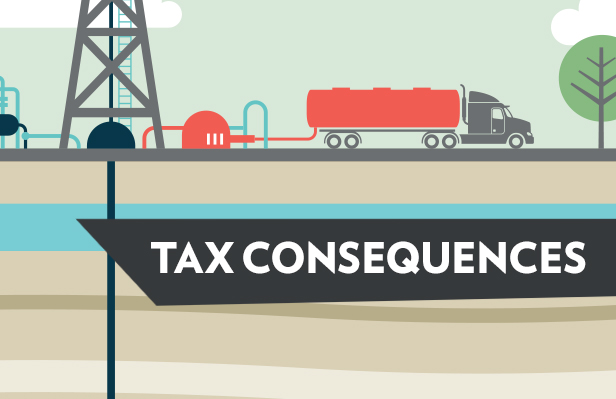Commentary

Gas Tax Critics Champion, not Oppose, Progress
Recently, Gov. Tom Wolf sent a letter to 17 business advocacy groups opposing his proposed severance tax on natural gas, accusing them of siding “with corporate special interests who simply seek to oppose progress and real economic development.” The irony is, the chief proponents of the severance tax are government union special interests looking for a cut of Pennsylvania’s productive natural gas industry.
Trade unions working in the energy sector offer a different perspective. Dennis Martire, vice president of the 40,000-member Laborers’ International Union of North America, opposes a severance tax because it risks reversing an unprecedented economic revival.
“We already have seen a reduction in pipeline man-hours over the past two years related to falling gas prices,” reports Mr. Martire. “If you excessively tax the shale industry, you risk hurting employers, workers and communities across the state.”
Given Pennsylvania’s tax structure, it’s hard to argue the industry isn’t already paying its fair share. From high corporate taxes to a special impact fee, natural gas companies are paying plenty.
Pennsylvania’s 9.99 percent corporate income tax rate is the most striking example of the commonwealth’s disadvantages. The tax rate is the highest among gas-producing states. Texas and Wyoming have no corporate tax, and neighboring West Virginia has a corporate tax of only 6.5 percent.
Unlike Pennsylvania, the majority of the top 13 gas-producing states offer some type of severance tax exemption for newly drilled unconventional wells. Louisiana for example, suspends severance taxes on a horizontally drilled well for two years or until payout of the well cost is realized, whichever occurs first.
Also unique to Pennsylvania is the state’s so-called impact fee, which has amounted to a 2.1 percent assessment on production, producing more than $600 million for the state and municipalities from 2011 to 2013.
The overall tax climate of Pennsylvania ensures that any business, including gas companies, pays its fair share. In contrast, Gov. Wolf’s tax proposal is anything but fair.
How would you react if you made $60,000 last year but the IRS taxed you as if you’d made $90,000? That’s essentially what Gov. Wolf plans to do to the gas industry. Gas prices have been hovering below $2.00 in recent months, but Wolf proposing taxing drillers as if prices were at minimum $2.97.
Apart from fairness, excessively taxing the natural gas industry hurts employment and economic growth throughout the commonwealth.
In their original letter to Wolf, business groups predicted that a severance tax would cost Pennsylvania more than $20 billion in gross domestic product and drive away up to 18,000 jobs over the next decade. Wolf called that “bogus rhetoric” in his response, but those on the ground disagree.
Gina Severcool Suydam, executive director of the Wyoming County Chamber of Commerce describes the tax as an “economy killer.” Suydam says, “It would be a serious additional cost burden in maintaining the competitiveness of Pennsylvania gas, consuming any advantage our producers currently have over gas from other areas.”
Just the suggestion of a severance tax is impacting Pennsylvania’s economy. Huntley & Huntley Energy Exploration withdrew a subsurface lease offer for approximately 90 acres of land owned by Harmar Township in Allegheny County due to tax uncertainty.
If Gov. Wolf wants “real economic development,” he need look no further than Bureau of Labor Statistics data. From 2008-2014, Pennsylvania’s Marcellus Shale counties dramatically outgrew other counties:
- 8.7 percent employment growth compared to 0.6 percent.
- 29.9 percent growth in total wages compared to less than half that.
- 20 percent growth in average weekly wages compared to 11 percent.
That kind of growth translates into billions of dollars paid to landowners in royalties, and billions more to state and municipal treasuries in income and gas-related business taxes.
Energy consumers benefit as well: A Mercator Energy analysis found that low natural gas prices helped poor families by reducing their utility bills by $10 billion per year. In contrast, the Independent Fiscal Office found that about $181 million of Gov. Wolf’s severance tax would ultimately be paid by families earning less than $100,000.
All Pennsylvania businesses and workers want is the freedom to earn an honest living. Gov. Wolf should be making that aspiration easier to achieve—not threatening the best thing that has happen to the state’s economy in decades.
# # #
Gordon Tomb is a senior fellow for the Commonwealth Foundation, a Pennsylvania-based, free-market think tank.